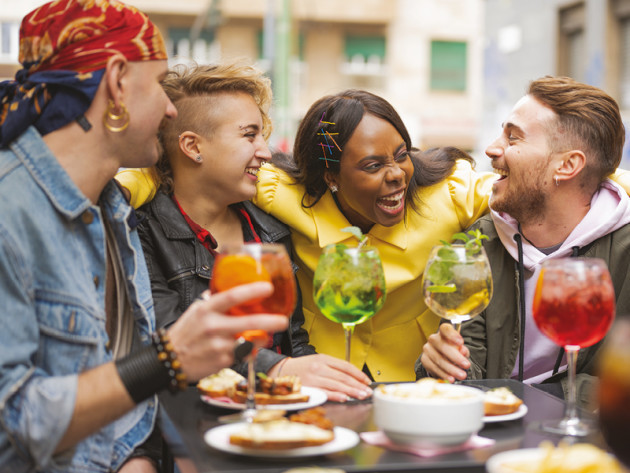
Top beverage trends for 2023 reveals 'mindful' focus
With a focus on the low&no market Finlays, the B2B supplier of tea, coffee and botanical solutions has revealed its annual beverage trends report for 2023, highlighting the more 'mindful' approach consumers are taking to the drinks industry.
Using data compiled by its own Global Insights Team, Finlays found that ‘selective spending’ will be the number trend for brands to keep an eye on next year, as consumers deal with inflation, stagnating wages and slowing GDP growth.
This may present an opportunity for the ‘affordable luxury’ market as consumers seek value for money. Beverage brands that can offer consumers a premium product at a competitive price will be best placed to capitalise on this trend.
According to GlobalData, 62% of global consumers are concerned about their financial situation in 2022. Another cost-effective solution consumers are likely to pursue is bulk buying. Consumers are stock-piling to drink at home, and looking for cost-effective ways to buy their favourite drinks, especially with reduced spending on social and leisure activities.
Sian Edwards, group insights manager at Finlays said: “The cost of living crisis is, of course, front and centre of everyone’s minds. This is a double-edged sword for the beverage industry – on the one hand we expect to see consumers exercising spending caution. But on the other hand, we're seeing the return of the beverage as an 'affordable indulgence', creating opportunities for innovation and value creation.”
Meanwhile, ‘mindful drinking’ is also on the up. According to Global Data, sales of non-alcoholic spirits reached more than $140mn in 2021, up from $60mn in 2016.
Tea and coffee ingredients have been central to this trend, with brands looking to create healthy/functional alcohol alternatives. Hard seltzer brands, operating in an increasingly competitive market, are also looking to differentiate with new hybrid products, combining the ‘health halo’ and accessibility of tea with the premium branding and occasion targeting of hard seltzers.
Global Data also found that 18% of global consumers only drink alcohol when socialising, increasing to 23% of Gen Z, further solidifying the ‘mindful drinking’ trend.
With consumers taking a more considered approach with their purchases, from value to health benefits, it’s also worth highlighting the ‘eco-anxiety’ some customers are developing. According to Global Data, 42% of global consumers are willing to pay more for products/services supporting climate change causes.
Edwards added, “Throughout this report, we’ve sought to encapsulate this broad sentiment under the banner of ‘mindfulness’, as people mindfully allow themselves indulgences, choose healthy products, and opt for brands with a lower environmental impact.”
The full report is available via www.finlays.net/about-us/global-beverage-trends-report






